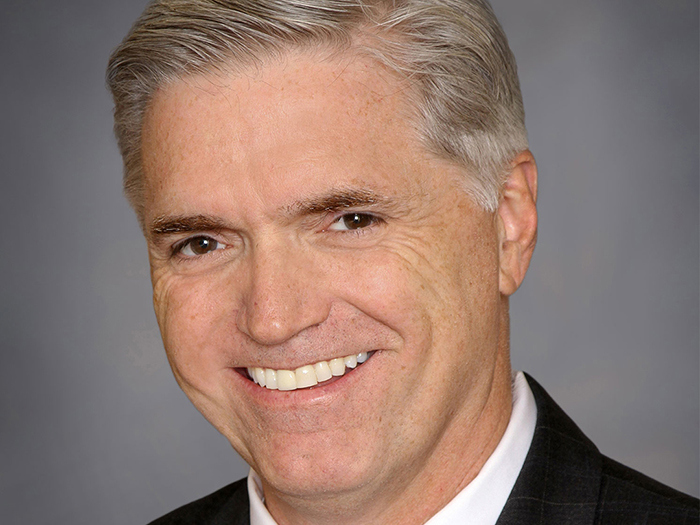Legislative Lobbying
Brokers List Legislative Priorities

You don’t have to spend your days watching C-SPAN to know that insurance issues are taking a prominent role on Capitol Hill lately.
“I don’t think I’ve ever seen the parochial interest [the insurance industry] holds having risen to the national priority that is the current environment,” said Joel Wood, senior vice president of government affairs for The Council of Insurance Agents & Brokers. “Agents have a lot of skin in the game.”
With the passage of the flood insurance bill, many agents are breathing a sigh of relief that the specter of massive rate increases won’t become a reality. However, several other pending issues could have weighty consequences for the insurance industry at large, and agents in particular.
The Affordable Care Act
“The independent agents are small business owners that are being impacted greatly by the implementation of health care reform,” said Mike Becker, executive vice president and CEO of the National Association of Professional Insurance Agents (PIA).
“We’ve been incredibly loud advocates for the agent, ensuring that they’re able to participate, should they desire to do so, and they’re fairly and justly compensated for doing so, whether they’re participating in the traditional market or through an exchange,” he said.
PIA is currently asking members to find cosponsors for H.R. 2328, the Access to Professional Health Insurance Advisors Act, introduced by U.S. Reps. Mike Rogers (R-MI) and John Barrow (D-GA), to ensure that agent compensation is not disadvantaged by implementation of the ACA.
Wood pointed out that the current political climate during mid-year elections may make it difficult to achieve much change on the legislative end, so the CIAB is focusing more on regulatory issues related to health care.
“The pieces we’ve been engaged on are with respect to issues that impact ERISA [Employee Retirement Income Security Act] with the Department of Labor, to testifying on the wellness provisions, to working with the various agencies on trying to develop the right kind of nondiscrimination rule that has yet to come forward and the auto-enrollment rules that have yet to come forward.
“There are a million moving parts on the Affordable Care Act, and we try to engage on all of that impact our clients,” Wood said.
Terrorism
Another issue that is top of mind for agents is renewal of the Terrorism Risk Insurance Act (TRIA), which is set to expire at the end of the year.
“Almost every major commercial policy today has a rider on it that says that post-Dec. 31st 2014, terrorism coverage will not be in place depending upon the outcome of this debate,” Wood stated.
“It’s a product that’s not easily accessible in the private market without the terrorism risk and insurance program,” said Becker. “We support those programs and we’re going to be advocating for its passage.”
Global Compliance
The CIAB is also focusing on the Foreign Account Tax Compliance Act, which is designed to prevent tax evasion in transactions with offshore companies.
“We have unsuccessfully argued to the IRS that we should be exempted from implementation and reporting requirements on commercial insurance transactions,” Wood said. “Now, we’re moving to the implementation side and it’s going to be a burden both on the brokers and on their clients.
“Theoretically this sounds pretty simple, but there are unanswered questions. What is Lloyd’s of London, for example? Is that one insurance company or is it 200 companies, or is it 20,000 syndicates?”
To that end, CIAB is seeking clarification within the rules so that it can become a clearinghouse to help international insurers to comply with FATCA.
Regulation
One of PIA’s biggest concerns involves federal regulation of insurance.
“We don’t think that there’s any further reason for federal regulation in this sphere,” said Jon Gentile, PIA national director of federal affairs.
“The insurance industry historically has been regulated at the state level. One of the things that came out of the financial crisis was that state regulation did, in fact, work and it worked well. We just want to make sure that our members are up on the Hill letting members of Congress know that state-based regulation does work well and has been for some time.”
However, the CIAB views this issue through a different lens.
“We think that it’s almost an embarrassment that our industry’s regulation is so fragmented when it comes to international trade,” said Wood. “We’re surprised at the degree to which some state insurance regulators have taken umbrage at the obvious role, as asserted in Dodd Frank for the Federal Insurance Office, to participate in reflecting U.S. goals in global talks.
“It’s a national business,” he said. “There has been a huge amount of consolidation. All the trend lines are going further in that direction.”
Wood also said that CIAB is advocating for passage of the National Association of Registered Agents and Brokers Reform Act that is designed to streamline interstate insurance licensing.
“It was big disappointment on not getting it [added as a rider to] the flood legislation. Shame on us, if we can’t get that to the finish line this year,” he said.










